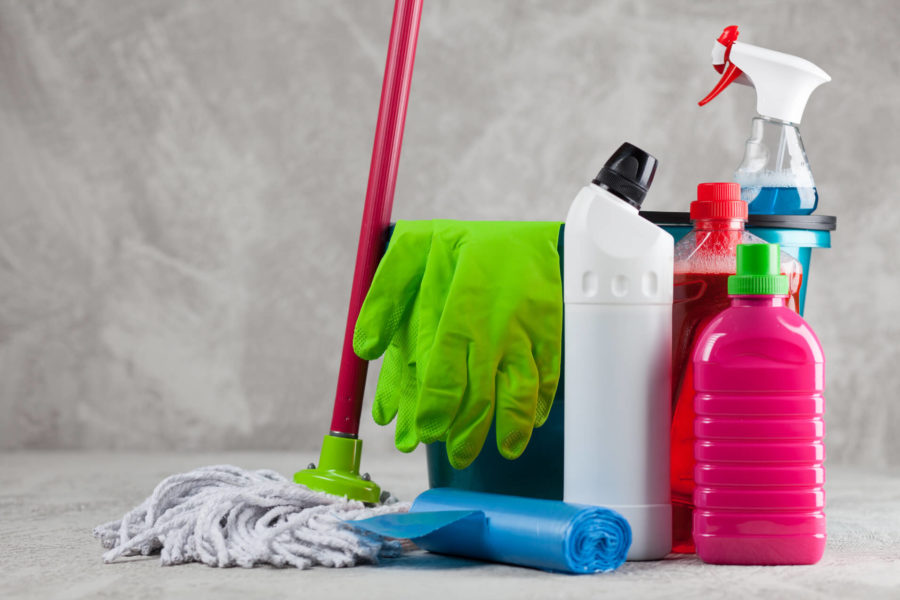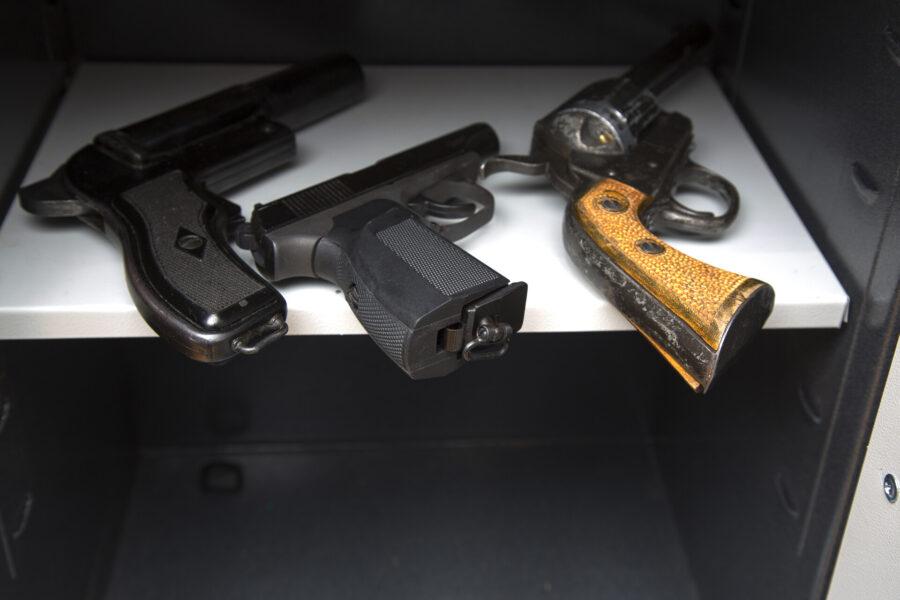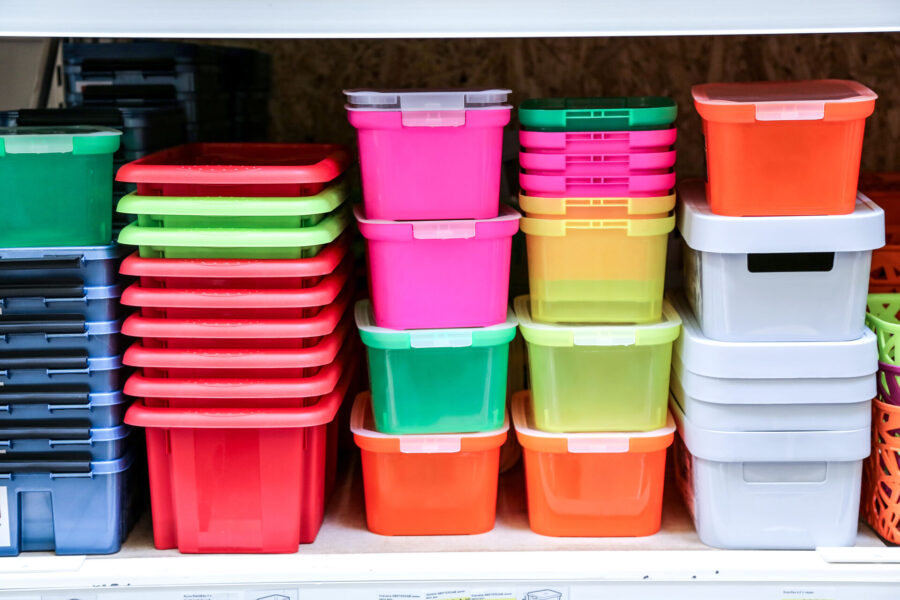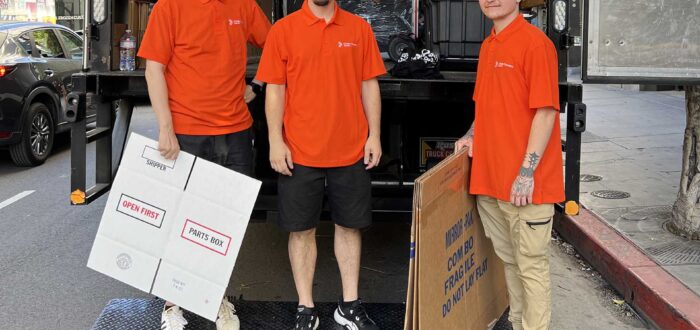

What Not to Pack When Moving? 6 Things That Can’t Be Put on a Truck
Posted in Moving Essentials,Moving Tips & Tricks on April 24, 2023
Packing can be a hectic process. Deciding between things to load onto the transport truck, what stuff to carry with you, and what not to pack when moving can be exhausting for all of us. Check the list of six items you shouldn’t box up for the truck – some of them may surprise you.
What Not to Pack When Moving to a New Home
If you decide to pack everything yourself, be well informed about the items you can’t transport in the moving truck. Learn how to pack a car efficiently to save space and avoid making mistakes.
Professional cross-country movers will be transparent in their contract with things that can’t be transported in the van, meaning there is a list of items movers won’t move. This is a precaution for all the bumps in the road and changing temperatures in the back of the truck, which can be a dangerous environment for mixing chemicals.
It is Best to Work Smarter, Not Harder – Know What Things to Throw Away When Moving and Packing
The best way to kick off your journey is to make a detailed house inventory list. This will aid your long-distance moving company in giving you the closest estimate on their cross-country moving services.
Before you start organizing and preparing your stuff, decide what things to keep and what will not go with you. Think about decluttering first because this will aid you in scaling down on the belongings to pack. Doing this first will improve your budget immensely, and you might even be able to afford a packing service.
Make a list of what to get rid of when moving and how to do it properly, what to give to family or friends, what to donate, and what to sell. Organizing a garage sale or yard sale will allow you to save some money for your budget. Everything else that you’re taking with you should be well-secured in your vehicle.

#1 Bathroom Products, Flammable Liquids, and Chemicals
All three can wreak havoc in the back of a truck during cross-country moving. Many of these objects are explosive on their own, not to mention what reaction can happen if they come into contact with each other. Furthermore, the ever-changing temperature in the back of the truck can easily set some chemicals on fire.
Here is the list of objects you should pay close attention to.
- Beauty products like deodorants, hair sprays, and nail polish can be very dangerous because of aerosols. Check all the products you stacked and never used, half-full bottles, and see if anything is expired. Bring only what is important in your suitcase, and use the rest before the move.
- Flammable liquids and household chemicals that can spark a fire should be secured and tightly wrapped when moving across the country. Cleaning chemicals mixed with high temperatures will release dangerous fumes and fatal gasses because most of them contain bleach and ammonia. Check and dry out all the utensils that work on flammable liquids before the move.
- Fireworks, matches, gasoline, fertilizers, pesticides, poisons, pool chemicals, any type of batteries, painting materials, light bulbs, and lamp oil should also be left behind.
These are the reasons why many long-distance movers will explicitly forbid you to pack any of these onto their trucks.

#2 Guns, Ammunition, and Explosives
Relocating companies usually don’t transport arsenal in their trucks because they can lead to fatal scenarios. If you decide to do it yourself, be sure to move a gun safe the right way. Don’t leave it unattended, as it’s easy to get lost in the stress of packing. Keep it away from children and pets to avoid accidents.
Empty the safe and separate firearms and ammunition. Accidents can happen if anything gets heated up, so transport it in a cool environment. Keep in mind that you should contact law enforcement agencies before you move your arsenal into their area of business.

#3 Food and Perishables
If you saved a special cut of meat or expensive wine, think about enjoying it before the move. Movers can’t store anything that needs to be in a cooler, and in this situation, portable coolers won’t be much of a help either.
Look through your fridge and freezer for open containers or prior prepared meals. Try to go through most of it, or throw a moving away party for family and friends, to aid you with food. Long-lasting food stored in cans, sealed packages, pasta, and rice can be relocated if secured right from denting or opening.

#4 Valuables and Items of the Great Sentiment
Everything you are taking with you is already valuable in your heart, but there is a difference when it comes to irreplaceable goods. Be sure to keep them with you and safeguard them in the right containers with a locking system. Art, old pictures, and family photo albums should be stored far from firearms and flammable liquids.

#5 Anything Living or Breeding
Give your pets some time to prepare for the move. Their habits shouldn’t suffer because of the tight timeline. You should pay attention to the season when moving cross-country. If you’re relocating during the colder parts of the year, primarily moving in winter, think about extra covers and blankets to keep your pet warm and comfy.
When you choose to move with your pet during warmer months, prepare enough water rations, coolers, and air conditioners. Try to make more stops along the way to help your pet cool down, especially when moving during the summer. In either case, you must bring sufficient food for everyone, including your pet.
Pets like insects, reptiles, birds, or fish aquariums shouldn’t be transferred in the transport van either. Be careful with unwanted pests like moths or fleas – no one wants them in the new residence. Here is the video with pro tips on how to help your pet go through the move.
Moving Your Plants, and Should You Pack Them?
Before you take some of your plants, be sure they can endure changes in the environment, especially if you’re going to a state with a different climate. Research if your plant is adaptable – if it’s not, you should ask neighbors, family members, or friends to give it new accommodation.
Put your plant in the right box for its height and the size of its pot. Coordinate watering with the time you will spend in the transport. Just keep in mind that many of the fertilizers, poisons, and pesticides used for planting are prone to catching fire.
#6 Personal Bags With Essentials
Hiring professional movers is always a smart choice, but be sure to carry all the personal documents with you. Make a moving binder to assist you with sorting your papers into sections. Try to organize important papers, including transactions and insurance, before you leave. You might need to check or provide information on them during the traveling process, so keep them close.
Each family member should be equipped with moving essentials like favorite clothes, hygiene products, pillows, towels, and bed sheets for the first couple of weeks in a new place. Make sure you are carrying your favorite dishes and coffee maker.
Charge your phones, laptops, and power banks, especially when you are relocating with kids, to keep them entertained. Provide them with a couple of smaller books, toys, or portable interactive games. If you are traveling with pets, be sure to put their favorite toy in the carrier for comfort.

Best Way to Declutter Your Things Before Packing
Decluttering brings so many internal questions. Take a deep dive into your inventory and be honest with yourself. This will save you from the stress of moving and packing up all the additional stuff. Many of these objects you probably didn’t use for some time. Let this be your main guideline when purging through your stuff, no matter its value.
Here are some easy tips on how to downsize for a move.
Memories or Junk
We find it hard to even get rid of commercial flyers, old sewing magazines from the time when we tried to learn how to sew, boxes with traveling souvenirs, and old pictures that our grandma stored. Decide what is important to you and throw away unnecessary stuff.
Items You Never Used
All of us made hasty decisions in the heat of a shopping spree, just to arrive home and realize we don’t even need it. Ask family members or friends if they need some of the stuff, or donate some of the well-preserved clothes to Goodwill or The Salvation Army.
Go Through Your Medicine Cabinet
Now is the time to check what medication and vitamins have expired. This way, you will easily see if you need a refill of your therapy. Be sure to dispose of it in the correct way. Pack important medicine in your personal luggage.
Flip Your Closet Upside Down
Go through all your clothes because it’s easy to overpack the wardrobe. Sort everything into piles, take with you the regularly used stuff, throw away worn-out pieces, and donate well-kept clothes you haven’t used in a while.
Bulky Items
Electronics, old appliances (like refrigerators, dishwashers, dryers, washing machines, fryers, and water balloons), books, and recreational and training equipment can take up a lot of space. The old furniture is difficult to wrap correctly, as it can easily come apart during transportation.
Selling some of the unnecessary pieces in a yard sale will allow you to earn some extra cash, while anything remotely usable can be given to charity. This will also make loading the truck a lot quicker and save you some extra cash because the movers usually charge by the hour.
Relocating to a new place can also be a good excuse to upgrade to the newer versions of your trusted items.
Broken Goods and Garage Clutter
If something was sitting in the dark corner with a thick layer of dust on it, it probably means you won’t need it in a new home either. Every broken mug, picture frame, toy, chair, dirty rug, old sewing machine, microwave, and coffee cattle should only find its way to the junkyard.
Old Sheets and Pillows
Worn-out pillows and mountains of torn-up sheets that we saved for the painting season have seen better days, so they can go to a well-deserved retirement. Blankets, old mattresses, and an alarmingly growing collection of decorative cushions should also stay behind.
Extra vehicles
Sell the second car, camper, or pickup truck and lower expenses for the move. If you can’t give up on your vehicles, learn how to prepare your car for shipping, or contact us for the best shipping service.
Figuring Out What Can or Cannot Be Moved Is Easy With Us
When you are fed up with sorting everything out, we can always help you with our impeccable packing service. Cross Country Movers offer you a free quote and assistance in every step of your journey, from helpful advice on what to ship in a separate transport to packing supplies and efficiently storing with our professional service. Our moving experts will give you more time for your family during this important transition, so contact us today for a stress-free move.






